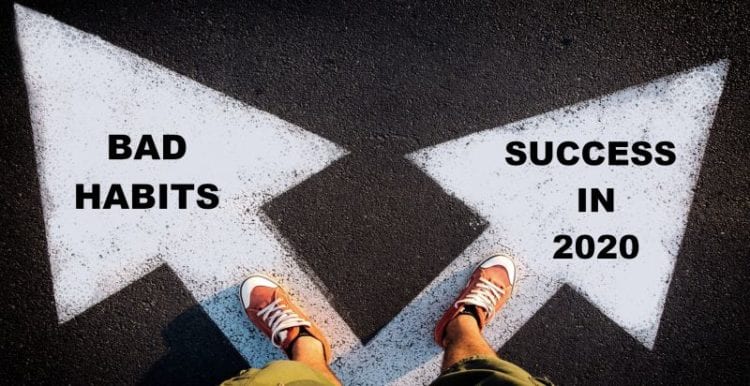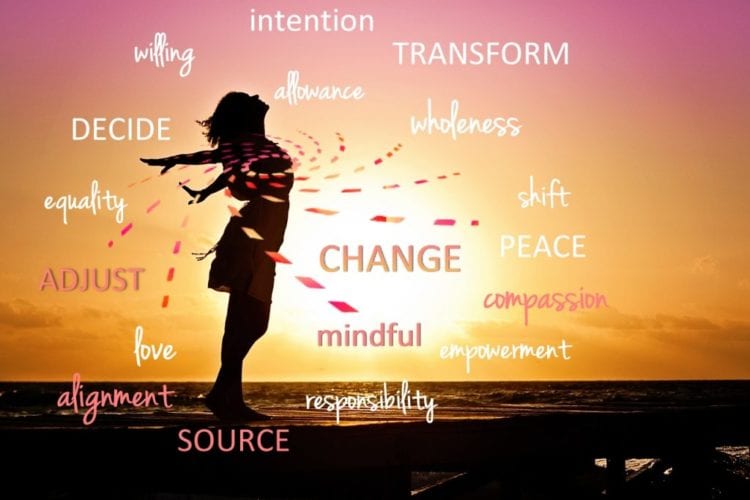Have you ever tried to get rid of some bad habits? Maybe you tried to lose weight, improve your body attitude, stop drinking or doing drugs, stop postponing work until the last moment, etc.?
Most people wanted to change at least something in their lives and tried to do so, but gave up shortly afterward, finding the challenge too demanding.

Some people never stop smoking or drinking, even when their doctors warn them of a severe illness. Some never go to the gym, regardless of the New Year’s decision they made. Some never cease to consider themselves good enough to be worthy of love and attention, despite all the promises they make. It’s just that people don’t know the right way to get out of the vicious circle of bad habits. To get some valuable info on that, visit infiniterecovery.com.
The tenacity of our habits is, believe it or not, a good thing. For example, brushing your teeth is not something that most people think about – it is automaticity because the habit itself stems from the desire to have healthy teeth and is so rooted that we no longer have to think about it. It is similar to driving a car, tying shoelaces or something similar. Our brains make our job easier by guiding you through already known neural pathways to save time and strength in re-learning everything in your life and what you think.
However, in the same way, there are rooting habits such as overeating, drinking too much alcohol, smoking, and other unhealthy things that later elude our control and that we can no longer stop.
All these habits have emerged because they were comforting in the beginning. Naturally, our brains made us repeat them. The tricky thing about habits is that over time people consider them to be part of themselves. “You know, I’m like that,” “My parents were obese, so was I,” “My husband smokes a pack of cigarettes a day, then I do it with him”… When habits become part of our identity, or when we begin to view them as part of our personality, then we renounce entirely the responsibility we have for our own lives. We attribute all those negative things to some higher power, genetics, the influence of society, the state, etc. or any other instance. On the unconscious level, we protect our habits as we protect our integrity.

The first step in changing bad habits is to “chase them away,” ie, to realize that some of our behavior, however useful or useless, is not part of our personality. Our behavior is always, but always, something that we can influence and have under control. It is also the most challenging step because people relate to habit, but it is imperative because it entails the next step: the decision to change the pattern.
You will notice that the word “change” is used instead of “eliminate” because habit usually has some function in our lives. That’s why that simple tip: “Just quit smoking, and you’ll be a non-smoker” or “Resist the urge to eat another cake” is rarely fruitful. When we listen to such advice, we get the impression that we are giving up something fundamental to us on a deeper level, and that plays an essential role in our lives, which thus remains vacant.
Replace the bad habit with a good one
That is why it is much more expedient to replace a habit that you have come to realize is harmful to you; someone who may play the same role in your life but is useful and supportive. For example, if you are used to smoking cigarettes when stressed, then you cannot just give up cigarettes and move on as if nothing had happened. You have to find a different way to deal with a stressful situation. In this case, you can choose to do a set of breathing exercises each time you feel the urge to smoke. If you were in the habit of overeating, drink a glass of water every time you feel an irresistible urge to nibble. The urge will pass in just a few minutes, and you will consistently stick to your three moderate meals a day.
Imagine your success

Imagination is a powerful weapon that allows us to anticipate our success and to feel what we will see, hear, and feel when we change what bothers us in life. So, imagine yourself in a few years, completely different habits, joyful, happy, fresh, fresh, doing what you always wanted to do.
The more you envision your future with your new habits, the more motivation you will have to persevere in the changes that you decide to make. That can be helped by the fact that you have not always had habits that bother you now, and sometimes it is enough to remember your old self so you can see that it is possible to live well without them.
Treat yourself with love
Changes in habits often entail mood swings, and this is quite normal. What you need to anticipate in these situations is that you may be trying to sabotage your success in the moment of unhappiness by doubting your own capabilities. Moreover, many are accustomed to seeing themselves as not good enough, not determined enough, not strong enough to accomplish anything in life, which then prevents them from achieving something truly and why they never really dare to change a habit. Every time you notice a thought that somehow presents you as a victim of your addiction: “I’m an addict …”, “I’m weak …”, “Cigarettes are my only and best friend …” stop and in your thoughts (or even aloud) add: “… but, in a few months, I’ll be in great shape,” “… but I’m working hard on myself and developing a new valuable skill,” “… but at any moment I can find a better friend than them,” and so on. Our brains tend to erase all the information that goes beyond the words “but” and you can use that to change the way you approach yourself gradually. Be your most significant support, not the biggest saboteur of your success.
Change the way you look at things
For some people, this can be a very problematic step. For them, change is something that disrupts their safety and is often the reason they return to their habits, even when they briefly manage to change them.
The point is that each of us has different internal filters by which we automatically and unconsciously interpret the world around us. As we know, not everyone experiences the world in the same way, so there are people who above all appreciate diversity and dynamism, but also people who need security in the form of continuity and predictable uniformity. Which group you belong to depends mostly on how long you will stay in the same situation on love, friendship, business, or any other plan before you become ready to change anything. In short, you may have a hard time coping with the changes because they naturally bother you. The good news is that this attitude towards change is not something “written in stone” and it is quite possible to manage your internal filters so that they are “on your side”.
For starters, you need to practice your resistance to change, and the longer you persist in it, the more natural the changes will be.
Many people would like more and are aware that changing their habits can help them start living the life they dream of. Every day, reality gets in the way of them, and then they continually delay the moment when they will make a turnaround and start a more beautiful life.
Do not give up
Change takes time. One study found that it took participants an average of 66 days before reporting that a new habit (exercise, healthy eating) had become an integral part of their daily lives. Some took a little less time, only 18 days, and some as many as 245, but all who persisted eventually acquired it.
In the end, what are the ten things we should do every day to make our lives happier? Those are the following:
1. Get out into nature
2.Exercise
3.Spend time with friends and family
4.Express gratitude
5.Meditate
6,Get a good night’s sleep
7.Challenge yourself
8.Laugh
9.Hug somebody
10.Be optimistic

